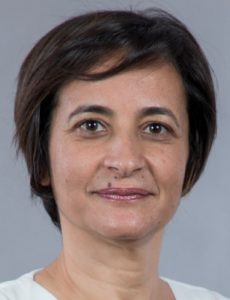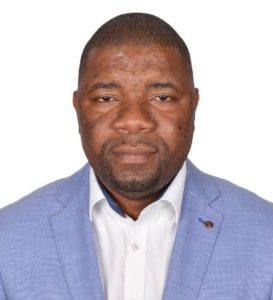Special Session #12: Renewable Energy for EV Charging Infrastructure
Co-Organizer: Sousso Kelouwani, Université du Quebec à Trois-Rivières, Canada
Co-Organizer: Afef Bennani Ben Abdelghani, University of Carthage, Tunisia
Co-Organizer: Arsénio José Mindú, Pedagogical University of Maputo, Mozambique
Call For Papers
Nowadays, electric vehicles (EV) are interesting ways in which renewable energy (RE) can be used in order to sustain the grid capacity to provide power in urban environment whilst reducing at the same time the transportation carbon footprint. The RE sources include (but not limited to) solar, wind, biomass, geothermal, biogas and hydroelectric. EV battery provides an efficient way to store the intermittent energy from some renewable source to the vehicle (RE2V) as well as to transfer energy from the vehicle to grid (V2G). However, to enable an efficient RE2G, several challenges need to be tackled: mismatch between the vehicle energy requirement and the energy from renewable energy, the capacity of the RE source, the quality of the available renewable power profile, the charging infrastructure capability to handle such intermittent power, power electronics, the impact of ambient operating conditions of the RE, etc.
The special session of the VPPC2022 will foster the discussion among researchers and industrial partners as well as policymakers in order to tackle the challenges involving the use of RE in Electrical Vehicles as means to ensure its propulsion. Researchers from low-income countries are encouraged to participate in this special session since they may contribute to their local-based research and trends regarding the use of RE in vehicles.
 Sousso Kelouwani
Sousso Kelouwani
Bio: Sousso Kelouwani (M’00-SM’17) is a holder of the Canada Research Chair in Energy Optimization of Intelligent Transport Systems and the Noovelia Research Chair in Intelligent Navigation of Autonomous Industrial Vehicles. Dr. Kelouwani received his Ph.D. in robotics systems from Ecole Polytechnique de Montreal in 2011 and completed a postdoctoral internship on fuel cell hybrid electric vehicles at the Université du Québec à Trois-Rivières (UQTR) in 2012. He developed expertise in the optimization and the intelligent control of vehicular applications. In 2019, his team received the 1st Innovation Prize in partnership with DIVEL, awarded by the Association des Manufacturiers de la Mauricie et Centre-du-Québec for the development of an autonomous and natural navigation system. In 2017, he received the Environment Prize at the Gala des Grands Prix d’excellence en transport from the Association québécoise du Transport (AQTr) for the development of hydrogen range extenders for electric vehicles.
Full Professor of Mechatronics in the Department of Mechanical Engineering since 2017 and a member of the Hydrogen Research Institute, he holds 4 patents in the United States and Canada, in addition to having published more than 100 scientific articles. Prof. Kelouwani was co-president and president of the technical committee of the IEEE International Conferences on Vehicular Power and Propulsion in Chicago (USA, 2018) and in Hanoi (Vietnam, 2019). His research interests focus on optimizing energy systems for vehicle applications, advanced driver assistance techniques, and intelligent vehicle navigation taking into account Canadian climatic conditions. Winner of the Canada General Governor Gold Medal in 2003, he is a member of the Order of Engineers of Quebec.
 Afef Bennani Ben Abdelghani
Afef Bennani Ben Abdelghani
Bio: Afef Bennani-Ben Abdelghani (M’08, SM’18) is Associate Professor with University of Carthage, Tunisia. She received the B.Eng. degree with honors and the DEA degree from the National Engineering School of Tunis (ENIT), Tunisia, in 1998 and 1999 respectively, both in electrical engineering, and the PhD. degrees from the Institut National Polytechnique de Toulouse, France, in 2003. From 2003 to 2005, she was a Research Assistant with the LAPLACE-CNRS Research Laboratory, University of Toulouse France.
Since 2006, she has been with the Instrumentation and Physics Department, University of Carthage, and a Researcher with the Electrical Systems Laboratory, University of Tunis El Manar, Tunis, Tunisia. She was an Invited Professor with University of Nantes, France. She published more than 50 scientific articles and communications and holds a patent in Tunisia. She received the best paper on Renewable Energies at the International Conference on Ecological Vehicles and Renewable Energie (EVER) in 2019. She participated in National, European and International projects and conducted bilateral research Projects. She is the General Co-chair of the 4th IEEE Conference on Electric Systems and Technologies in Maghreb (CISTEM’2022). Her research interests include Fault-Tolerant power systems, multilevel converters and power electronics for renewable energy and e-mobility systems.
 Arsénio José Mindú
Arsénio José Mindú
Bio: Arsénio José Mindú, is a PhD candidate in Renewable Energy and Environment at Pedagogical University of Maputo – Mozambique in partnership with Universidade do Porto – Faculty of Engineering. He has a Master’s degree in Renewable Energy and Environment held at Pedagogical University of Maputo. He has been involved in several Energy studies and research projects in Mozambique and in Southern African countries. He participated in Renewable Energy studies and projects in Portugal – Universidade do Porto, whereby he undertook research, paper writing, conference attendance (as author), and other research project activities. He is currently working on Solar Photovoltaics for water pumping, aided by MATLAB/Simulink and PVSyst. He is a lecturer and researcher in areas related to Physics and Renewable Energy at Pedagogical University of Maputo.
Arsénio is a deputy Director for Research and Post-graduation at the Faculty of Natural Science and Mathematics at Pedagogical University of Maputo. He was a committee member in the organization of the International Conference in Science, Environment and Mathematics held at Pedagogical University of Maputo in 2021.. His research interests are: Renewable Energy for Irrigation purposes; Modelling and Optimization of Renewable Energy Systems.
Submission Deadline EXTENDED: 30 May 2022
Acceptance notification: 11 July 2022
Final paper submission deadline: 8 August 2022
To submit a paper to this Special Session, please visit: https://vppc2022.trackchair.com/track/2080
